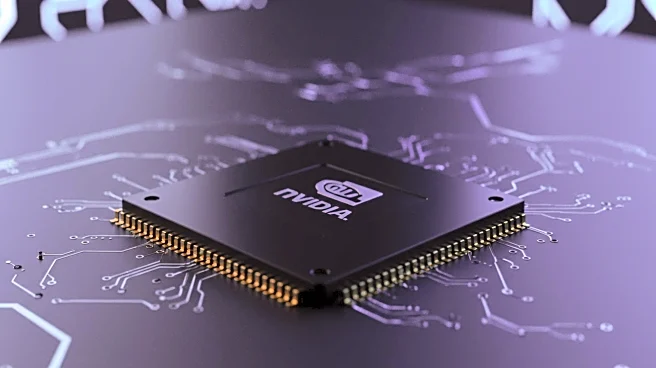What's Happening?
President Trump has indicated that Nvidia's advanced Blackwell AI chips might be included in future trade deals with China, albeit in a 'somewhat enhanced, in a negative way' form. During a press briefing, Trump discussed the possibility of negotiating the sale of these chips with reduced performance, similar to previous deals involving limited versions of Nvidia's RTX GPUs. The Blackwell chips are described as highly advanced, with potential market demand in China despite performance curtailment. This move follows Trump's recent approval of licenses for Nvidia and AMD to sell AI chips to China, highlighting ongoing negotiations in the tech sector.
Why It's Important?
The potential inclusion of Nvidia's Blackwell AI chips in trade deals with China underscores the strategic importance of technology in international relations. By offering limited-performance versions, the U.S. aims to balance trade interests with national security concerns. This approach could impact the global semiconductor market, influencing supply chains and competitive dynamics. For Nvidia, such deals could open new revenue streams, while China may gain access to advanced technology, albeit with restrictions. The negotiations reflect broader geopolitical tensions and the role of technology in shaping economic and diplomatic strategies.
What's Next?
Future negotiations may focus on the specifics of the Blackwell chip deal, including performance limitations and trade-offs. The U.S. could seek concessions from China, such as access to rare earth materials or other strategic resources. As talks progress, stakeholders in the tech industry and government will closely monitor developments, assessing potential impacts on trade policies and market dynamics. The outcome of these negotiations could set precedents for future tech-related trade agreements between the U.S. and China.










